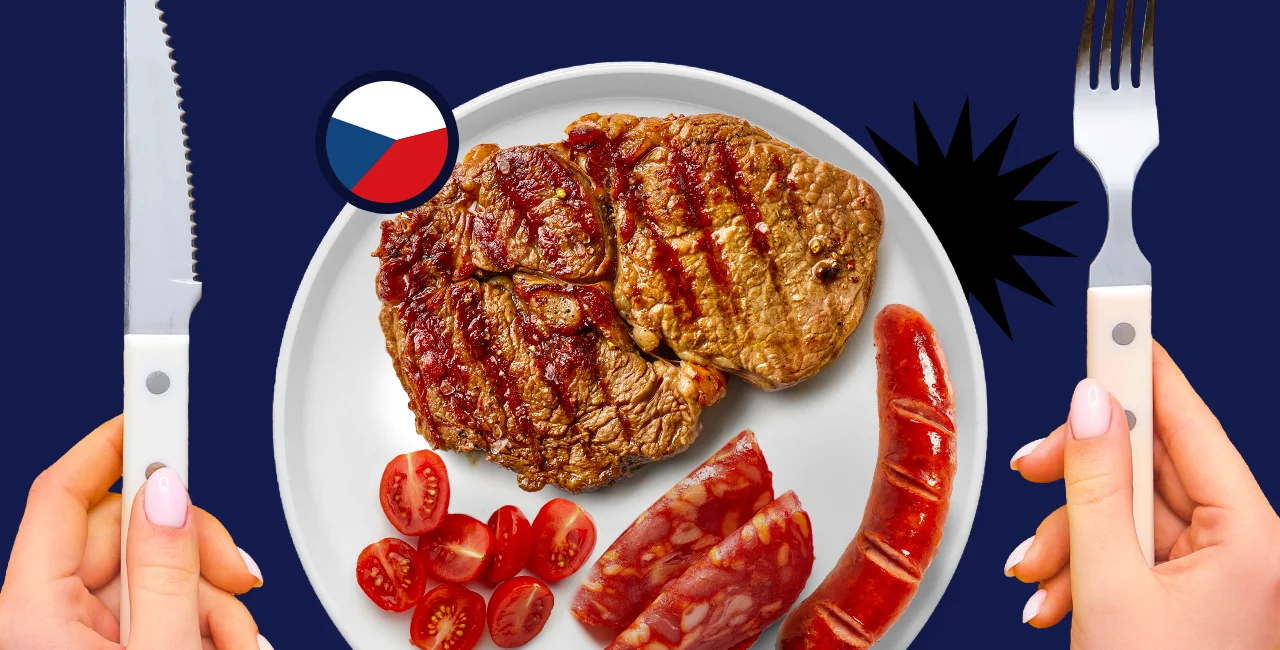A new Europe-wide survey of eating trends has revealed that Czechia still lags behind other states in adopting healthy eating habits. Despite growing awareness and healthier eating habits compared to last year, Czechs often eat in a hurry, choose the wrong things, consume food in inappropriate surroundings, and – perhaps the worst thing – prioritize price over nutrition.
According to the survey, a significant number of Czechs consume too much meat and not enough vegetables. The recommended daily intake of vegetables is roughly 400 grams, but only a quarter of respondents eat vegetables every day, and half do so at most four times a week. Tomatoes, salad cucumber, peppers, and carrots are the most popular vegetables for lunch.
"We have more than 1 million diabetics, which is more than 10 percent of the population. It is a problem that is alarming," said Matyáš Fošum, director of the public health protection department of the Ministry of Health, said as part of the press release. Fošum highlighted that twenty-three percent of deaths are linked to poor diet.
The survey also revealed that only one in four Czechs eat vegetables every day – as is recommended by health specialists. Price may be a factor in this: over two-thirds of all people in Czechia spend up to 30 percent of their total family budget on groceries – no small sum.
Excessive meat consumption is a significant concern, with a third of Czechs eating meat up to five times a week. According to doctors, even a 50-gram daily portion increases the risk of colon cancer. "More than a third of people eat their lunch in less than twenty minutes. This is a very bad trend," warned Aneta Martišková, management member at Edenred.
High salt intake is another issue, with Czechs, especially men, exceeding the maximum recommended amount by up to three times, according to Eliška Selingerová, a nutritional epidemiologist at the State Health Institute.
"The eating culture in the Czech Republic has long been influenced by historical and social factors that have shaped people's habits and attitudes towards food," Fošum commented.
The Department of Health is implementing preventive projects to address these issues, focusing on reducing salt intake, for example. However, the main obstacle to healthy eating in the Czech Republic remains prices. A third of households surveyed said they spend 20-30 percent of their income on food, and some even more than 40 percent. Half of respondents think more about the price of food when cooking than a year ago.
"In the Czech Republic, life expectancy is increasing, but healthy life expectancy is stagnating," said Tomáš Prouza, president of the Trade and Tourism Association and vice-president of the Chamber of Commerce. As the country struggles to adopt healthier habits, it remains to be seen whether initiatives and awareness campaigns will be enough to drive change.
The survey also revealed that up to 85 percent of Czechs like French fries, and the most popular dessert is a větrník (a type of profiterole).












 Reading time: 2 minutes
Reading time: 2 minutes 




























